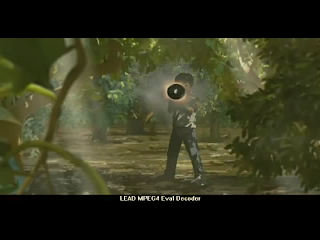Waltz with Bashir
Ari Folman
Palestine
2008
“Memory fills the holes with things that never happened.”
The film is about the search for lost memories—memories that are traumatic, something that is related to war and or a massacre. Ari, is a filmmaker who has been suffering from dissociative amnesia for 20 years after he experienced being drafted to the Lebanon War in 1982. He talks to his fellow soldiers of the said war and seek professional help from psychologists and professors to lead him get a bigger and fuller picture of his lost memories.
“Waltz with Bashir” is a perturbing yet stylish, intelligent and psychological, and above all else—a hell of a film. The cinematic experience is really fascinating and one of a kind in every aspect. From its solidly coherent form to its timely and haunting content, the film never felt short of successfully translating the cruelty and dreadfulness of any war. I have seen a lot of war films but this one is outstanding, keeping aside the fact that this is animated which actually gave the extravagant amount of surrealism in the film, the film has a poignant reference in the recurrence of war in the society and in its basic unit—family. There is a scene when Ari is talking to his doctor friend and tell him that Ari has been living in the massacre and war even before he has been drafted in the Lebanon war. Ari’s father also experienced war, it is during the 2nd World War, and since Ari was young he has already been living in the terror of any war could ever bring. This realization is of course disputable but the orientation of the present to the past and the past’s connection to the present is observed in vicious cycle that will continuously inhabit people’s psyche.
The film has a great form. The documentary style supports the search tremendously. It adds slowly building tension and more expectations that are either correct or wrong. The third person point of view or the filmmaker point of view is perfect since it is from the very beginning we already know that this one is going to be a quest movie. I also love the transition from Boaz’s point of view into Ari’s. The opening scene of the 26 angry dogs gives a strong start for the film, Boaz reveals that this is a dream and Ari later on has been revisited by disturbing flashbacks of his memory. It is from other person’s memory that ours are revisited. The motif of kids is made available since the opening sequel when a mother and child are frightened by the 26 angry dogs, and all of Ari’s friends have all their kids. Children are reference to the open ended but most likely to be doomed future of another war that Ari’s children could be then experiencing.
The first question that may arise after watching the film is why this is made animated. The immediate reason maybe is that it is going to be more affordable. With all the explosion and crane-utilizing shots, the film could be so costly—that is the economic perspective. The artistic reason on the other hand could be that expansive and accessible utilization of surrealism that is the fundamental representation of the war as an experience of our protagonist. The montages on the film which I really admire are too expensive and dangerous to be produced. Like the scene where a tank is driving in a narrow street devastating all the walls it is hitting and crashing all the cars it is stepping on. That scene is accompanied by a song I guess is entitled” Good Morning Lebanon”, and the scene is so beautiful as the tank crashes everything on its way as the song goes—“Good morning Lebanon..too much pain to carry on..good morning Lebanon.. may your creams come true..may your nightmares pass..your existence is a blessing.. Lebanon..you are torn to pieces..you bleed to death in my arms..you are the love of my life..oh my short life..tear me to pieces..I’m bleeding.
The content the film is tackling is very huge, very timeless, and psychological as well as very social. It’s as if every emotion in the film is bone-seated that at times the deepness of these emotions will give you a hard time which is the surreal and which is the real. The film captured the horror of a war, and that is the best compliment a war film could ever get. "Waltz with Bashir" has been effective because everything is set-up to a soldier point-of-view instead of the generals and high-seating officials' idiosyncrasies. Bashir, the president of Lebanon whose assassination triggered the Sabra Massacre has never really been included in the plot. He never spoke in the film, but his assassination impacted drastically lives of many people including our protagonist. Just an asymmetrical realization, ordinary people cries when popular people grasps their last breath, ordinary people lives are changed even without the slightest sight of these powerful person's shadows.



No comments:
Post a Comment